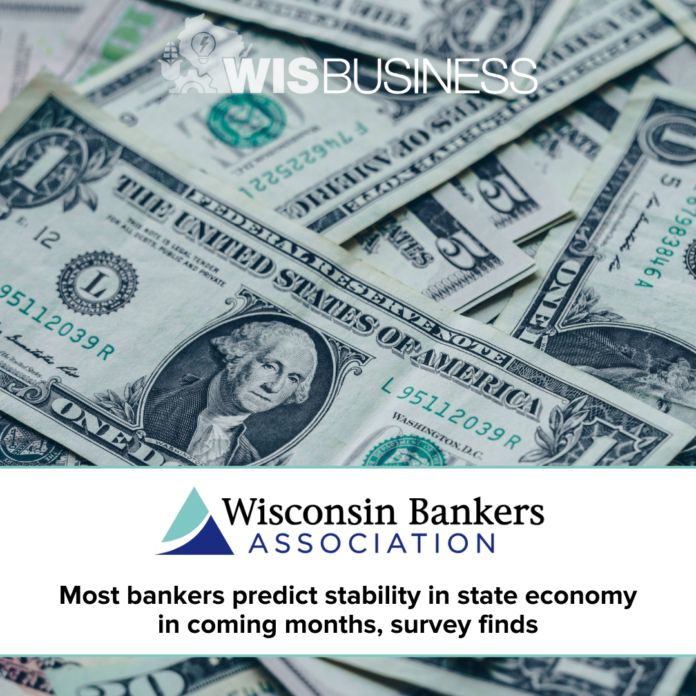Bankers predict overall stability in the state economy over the next six months, according to the latest Wisconsin Bankers Association survey.
That’s a shift from the last three surveys conducted in late 2022, mid-2023 and late last year, when surveyed bankers were much more likely to say the state economy would weaken in subsequent months.
The latest online survey was conducted between May 21 and June 21 with 66 respondents, according to a release from WBA. It found 70% of respondents expect the state economy to stay the same over the coming six months while 23% expect it to weaken and 8% expect it to grow.
In the last survey near the end of 2023, the breakdown was 47%, 44% and 9%, respectively, reflecting an improvement in bankers’ outlook.
Meanwhile, 71% of respondents say the current health of Wisconsin’s economy is good, while 24% said it’s fair, 5% said it’s excellent and no one said it’s poor. By comparison, 62% in the previous survey said the state economy is good, 27% said it’s fair, 6% said it’s excellent and 5% said it’s poor.
“Bankers understand that individuals, families, and businesses continue to feel the pressure of inflation, and banks stand ready to assist their customers in weathering economic challenges,” WBA President and CEO Rose Oswald Poels said in a statement.
The share of bankers predicting lower inflation has dropped substantially from the three last surveys, with just 26% saying they expect inflation to fall in the coming six months. That’s down from 48% in the last survey, which was roughly in line with the two previous surveys. Sixty-six percent of bankers now expect inflation to remain the same, and 8% expect it to rise.
At the same time, expectations for a looming recession have dampened considerably. The share of respondents saying a recession is likely in the coming six months has dropped from 62% in late 2022 to 56% in mid-2023 to 32% last year, before hitting 18% in the latest survey.
Likewise, the percentage of those saying a recession is unlikely has risen from 3% to 5% to 18% and now 43% this year.
Surveyed bank CEOs highlighted a number of economic “bright spots,” including increased spending levels, high demand for construction and other products and services, as well as strong employment and production levels.
Still, they also pointed to concerns about grain and dairy price declines in the agricultural sector, and workforce shortages limiting growth in manufacturing, WBA notes. Plus, the coming U.S. presidential election has the potential to put a “pause on certain economic activity,” respondents indicated.
See the survey.






